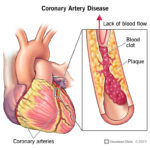Treatment-resistant schizophrenia (TRS) presents a significant clinical challenge within psychiatric care. Defined as the persistence of psychotic symptoms despite adequate trials of at least two antipsychotic medications, TRS affects approximately 20-30% of individuals diagnosed with schizophrenia. Its complex pathophysiology and heterogeneous clinical presentation demand a nuanced and multidisciplinary therapeutic approach.

Defining Treatment-Resistant Schizophrenia: Diagnostic Criteria and Clinical Features
The term treatment-resistant schizophrenia is applied when patients continue to exhibit prominent positive symptoms such as hallucinations, delusions, and disorganized thinking despite optimized antipsychotic regimens. Diagnostic benchmarks typically include:
- Failure to respond to at least two different antipsychotic agents of adequate dose and duration (minimum six weeks each).
- Persistent symptoms assessed by standardized scales such as the Positive and Negative Syndrome Scale (PANSS).
- Exclusion of non-adherence, substance use, and medical comorbidities that may mimic resistance.
Clinical manifestations often extend beyond positive symptoms to include negative symptoms (social withdrawal, anhedonia) and cognitive deficits, complicating management further.
Pathophysiological Insights Underpinning Treatment Resistance
Understanding TRS requires exploring neurobiological mechanisms distinct from treatment-responsive schizophrenia:
- Dopaminergic Dysfunction: While dopamine hyperactivity underlies classic schizophrenia, TRS may involve normodopaminergic or hypodopaminergic states.
- Glutamatergic Abnormalities: NMDA receptor hypofunction and disrupted glutamate signaling are implicated in resistance.
- Neuroinflammation and Oxidative Stress: Elevated inflammatory markers and oxidative damage correlate with poor treatment outcomes.
- Genetic and Epigenetic Factors: Variants in genes regulating neurotransmission, neurodevelopment, and drug metabolism contribute to heterogeneity.
Pharmacological Strategies for Treatment-Resistant Schizophrenia
Clozapine: The Gold Standard
- Indication: Clozapine remains the only FDA-approved medication specifically for TRS.
- Efficacy: Demonstrates superior efficacy in reducing positive symptoms, hospitalizations, and suicide risk.
- Monitoring: Requires regular hematologic monitoring due to risk of agranulocytosis.
- Side Effects: Includes sedation, weight gain, metabolic syndrome, and myocarditis.
Adjunctive Antipsychotics and Combination Therapy
- Combining clozapine with other antipsychotics or mood stabilizers can be considered in partial responders.
- Evidence for polypharmacy is mixed; individualized risk-benefit assessment is essential.
Novel Pharmacologic Approaches
- Glutamate Modulators: Agents such as glycine and D-serine targeting NMDA receptor pathways show promise.
- Anti-inflammatory Drugs: Minocycline and aspirin are under investigation for neuroinflammation.
- Long-Acting Injectables: Enhance adherence and maintain therapeutic plasma levels.
Non-Pharmacologic Interventions in TRS
Electroconvulsive Therapy (ECT)
- ECT is effective in refractory cases, especially when catatonia or mood symptoms coexist.
- Can potentiate clozapine effects and provide rapid symptom relief.
Cognitive Behavioral Therapy for Psychosis (CBTp)
- Targets delusional beliefs and coping strategies.
- Improves functional outcomes and reduces relapse rates.
Psychosocial Rehabilitation
- Essential for restoring social and occupational functioning.
- Includes vocational training, supported employment, and family psychoeducation.
Emerging Therapies and Research Directions
Transcranial Magnetic Stimulation (TMS)
- Non-invasive brain stimulation targeting specific cortical areas.
- Preliminary data suggest improvement in auditory hallucinations and negative symptoms.
Personalized Medicine
- Pharmacogenomic testing guides drug selection and dosing.
- Biomarker identification for predicting treatment response is ongoing.
Monitoring and Long-Term Management Considerations
Regular clinical monitoring is vital to assess symptom control, side effects, metabolic parameters, and treatment adherence. A multidisciplinary team including psychiatrists, psychologists, social workers, and primary care providers ensures comprehensive care.
Optimizing Outcomes in Treatment-Resistant Schizophrenia
Treatment-resistant schizophrenia necessitates early identification and prompt initiation of clozapine, combined with psychosocial interventions and vigilant monitoring. Advancements in neurobiology and novel therapeutic agents hold promise to improve outcomes. A personalized, multidisciplinary approach remains paramount for managing this complex disorder.

